Home > Understanding Dementia > What is Dementia?

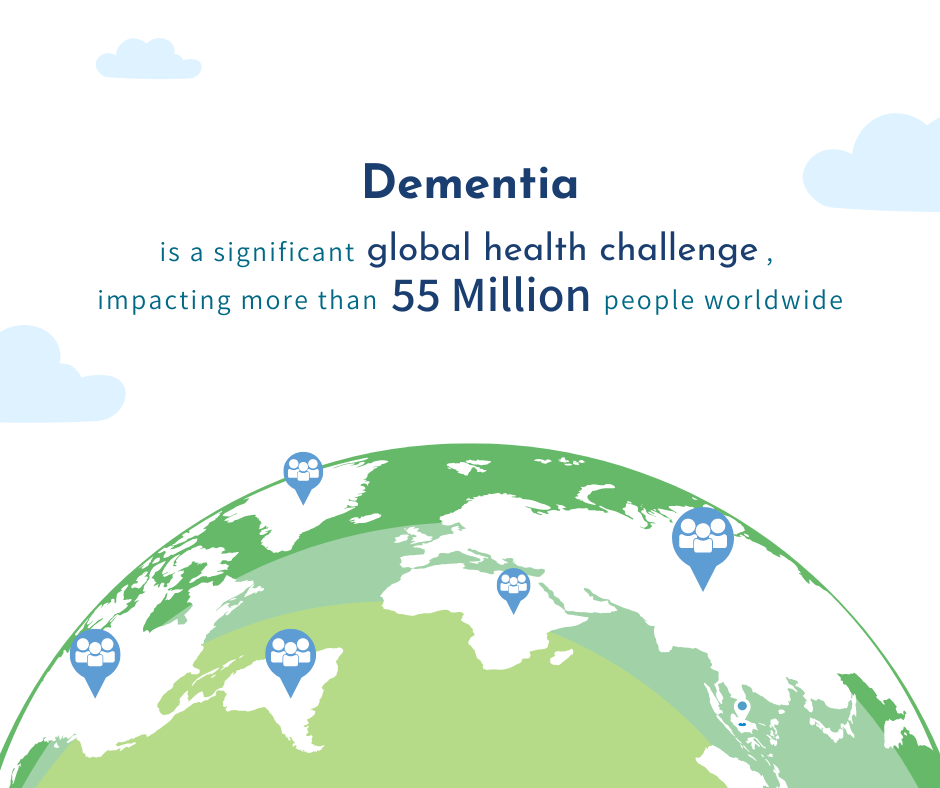
What is Dementia?
Dementia is a complex neurological disorder and significant global health challenge. Dementia is an umbrella term for a collection of symptoms that result from a disruption in healthy brain function[1]. This leads to a decline in a person’s ability to carry out daily activities, such as eating, bathing, toileting, and dressing.
Currently, dementia impacts more than 55 million people worldwide, with approximately 10 million people newly diagnosed with dementia every year. Sixty per cent of people with dementia are from low- and middle-income nations[2].
Dementia in Canada
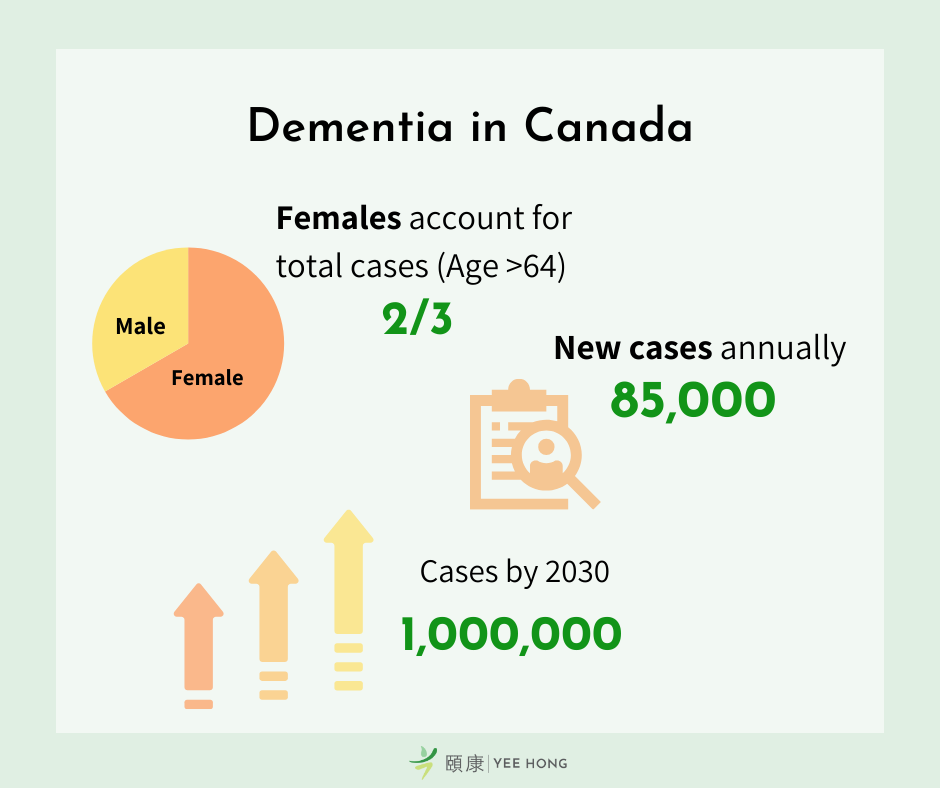
Dementia in Canada
According to the Public Health Agency of Canada (PHAC)[3], more than 452,000 Canadian seniors aged 65 and above were living with dementia between 2017 and 2018.
Annually, around 85,000 new cases of dementia are diagnosed in Canada, or approximately 15.7 new cases per 1,000 seniors aged 65 and above.
The incidence rate of dementia is higher among women than men; women account for two-thirds of the senior Canadian population living with dementia. The prevalence and incidence rates of dementia also increase with age.
According to a report from Alzheimer Society of Canada [4], in 2020, 597,300 individuals were living with dementia in Canada. This number is projected to reach nearly one million by 2030. Additionally, it is expected that by 2030, the annual incidence rates will reach 187,000 new cases per year.
Economic Cost
In addition to health and social impacts, dementia also has significant economic impacts. In 2019, the global cost of dementia was $1.3 trillion US.[5] Around half of this cost was associated with the informal caregiving provided by family members and close friends of people with dementia. These informal caregivers dedicated an average of 5 hours per day to providing care and supervision.[6]
Women are more likely to be impacted by dementia. Women tend to serve as the primary caregivers of individuals living with dementia, contributing 70% of the total care hours. In addition, women living with dementia also experience higher rates of disability-adjusted life years and mortality.[7]
Symptoms and Risk Factors
Symptoms
Common symptoms of dementia include memory loss, difficulties with attention, problem-solving, language, changes in mood and behaviour, and issues with vision, balance, and movement. There are various subtypes of dementia, each with specific symptoms and characteristics.
Risk Factors
Around two in every 100 people aged 65 to 69 have dementia. A person’s risk increases as they get older, approximately doubling every five years.[8] Although aging and genetics are the biggest risk factors for dementia, dementia is not a normal part of aging.
Alzheimer Society of Canada has identified some key risk factors for dementia.[9] On their own, these are not causes of dementia, but they may contribute to an increased chance of developing dementia.
- High blood pressure
- Smoking
- Diabetes
- Obesity
- Insufficient physical activity
- Poor diet
- High alcohol consumption
- Low levels of cognitive engagement
- Depression
- Traumatic brain injury
- Hearing loss
- Social isolation

Symptoms and Risk Factors

Symptoms
Common symptoms of dementia include memory loss, difficulties with attention, problem-solving, language, changes in mood and behaviour, and issues with vision, balance, and movement. There are various subtypes of dementia, each with specific symptoms and characteristics.
Risk Factors
Around two in every 100 people aged 65 to 69 have dementia. A person’s risk increases as they get older, approximately doubling every five years.[8] Although aging and genetics are the biggest risk factors for dementia, dementia is not a normal part of aging.
Alzheimer Society of Canada has identified some key risk factors for dementia.[9] On their own, these are not causes of dementia, but they may contribute to an increased chance of developing dementia.
- High blood pressure
- Smoking
- Diabetes
- Obesity
- Insufficient physical activity
- Poor diet
- High alcohol consumption
- Low levels of cognitive engagement
- Depression
- Traumatic brain injury
- Hearing loss
- Social isolation
Common Types of Dementia
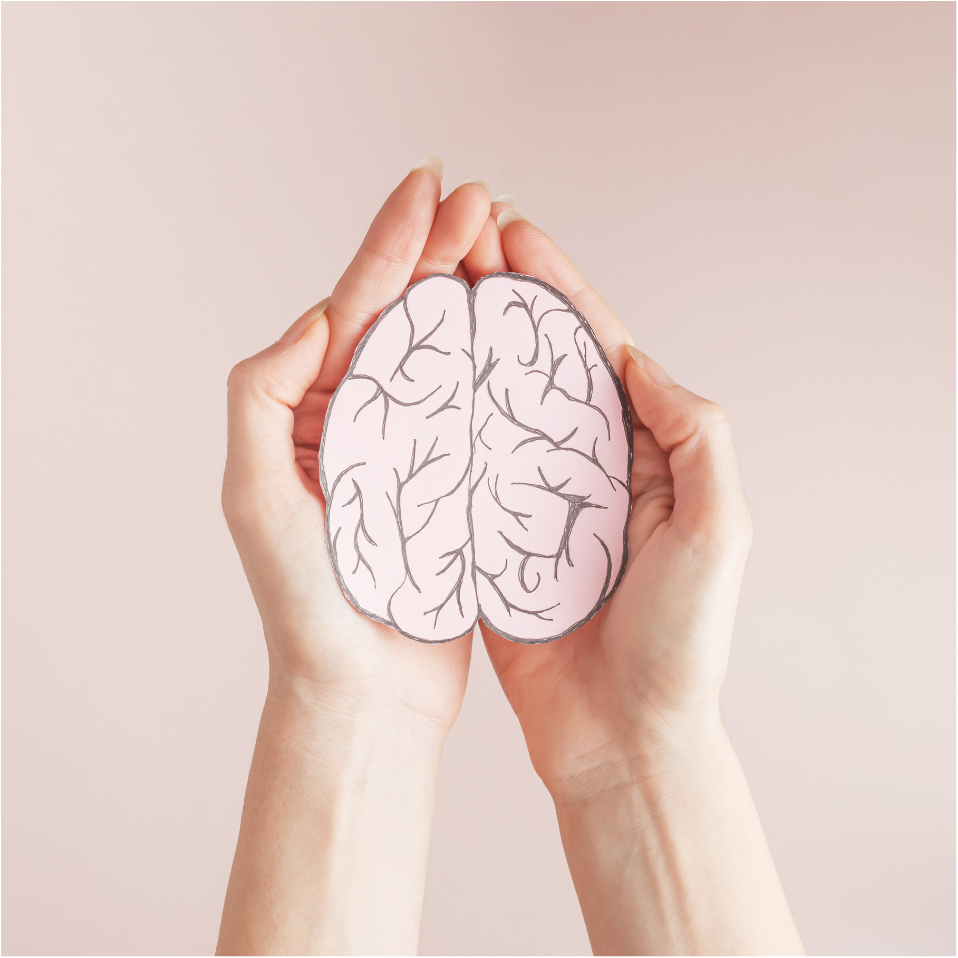
As dementia is an umbrella term, it can refer to more than one type of medical condition. There are five notable types of dementia, including:
-
Alzheimer’s disease
-
Vascular dementia
-
Lewy body dementia
-
Frontotemporal dementia
-
Mixed dementia
Common Types of Dementia
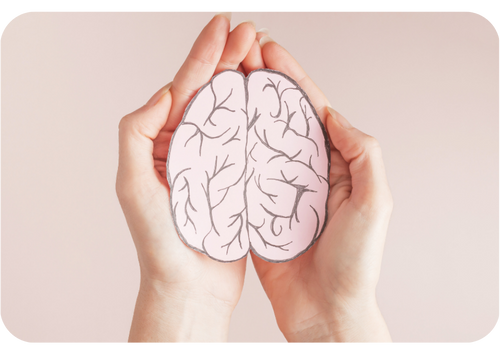
As dementia is an umbrella term, it can refer to more than one type of medical condition. There are five notable types of dementia, including:
-
Alzheimer’s disease
-
Vascular dementia
-
Lewy body dementia
-
Frontotemporal dementia
-
Mixed dementia
Rare Types of Dementia
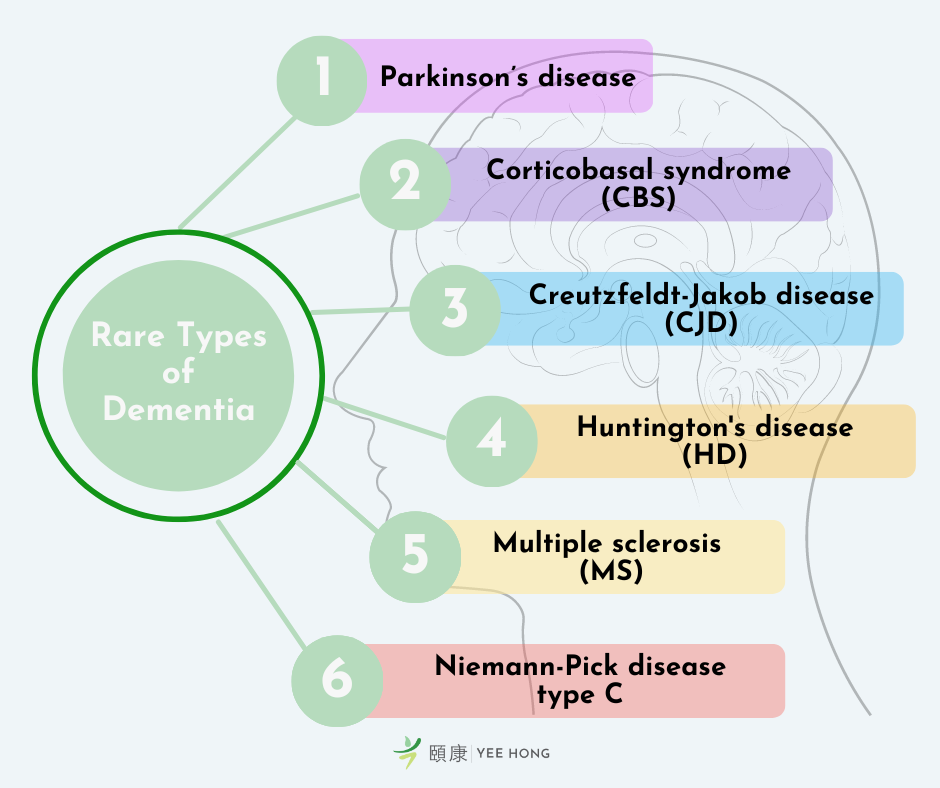
Apart from the common types of dementia, people living with dementia may have a rarer type of dementia caused by several rare conditions and diseases.[10]
Parkinson’s disease
Parkinson’s disease[11] is a progressive neurodegenerative disorder primarily affecting the brain regions responsible for movement control.
Corticobasal syndrome (CBS)
CBS[12] is a rare, progressive neurodegenerative disease that causes changes in specific brain regions that process information and control movement.
Symptoms include coordination difficulties, movement problems, and cognitive impairment.
Creutzfeldt-Jakob disease (CJD)
CJD[13] is a rare and fatal form of dementia caused by abnormal prion proteins in the brain.
Huntington's disease (HD)
HD[14] is an inherited neurodegenerative disorder characterized by the progressive death of certain nerve cells in the brain.
Others
In addition to the rare conditions mentioned above, Multiple sclerosis (MS), Niemann-Pick disease type C, Normal pressure hydrocephalus, Posterior cortical atrophy (PCA), Progressive supranuclear palsy (PSP), and Wernicke-Korsakoff syndrome are other rare conditions that may lead to dementia.
References
[1] Alzheimer Society of Canada. (2022). The Landmark Study Report 1: Navigating the Path Forward for Dementia in Canada. https://alzheimer.ca/sites/default/files/documents/Landmark-Study-Report-1-Path_Alzheimer-Society-Canada.pdf
[2] World Health Organization. (2023). Dementia. https://www.who.int/news-room/fact-sheets/detail/dementia
[3] Public Health Agency of Canada. (2022, November 4). Government of Canada. Canada.ca. https://www.canada.ca/en/public-health/services/diseases/dementia.html#a1
[4] Alzheimer Society. (2022). The Landmark Study Report 1: Navigating the Path Forward for Dementia in Canada. https://alzheimer.ca/sites/default/files/documents/Landmark-Study-Report-1-Path_Alzheimer-Society-Canada.pdf
[5] World Health Organization. (2023). Dementia. https://www.who.int/news-room/fact-sheets/detail/dementia
[6] World Health Organization. (2021). Global status report on the public health response to dementia. https://iris.who.int/bitstream/handle/10665/344707/9789240034624-eng.pdf
[7] Alzheimer Society of the UK. (2021). Risk factors for dementia. https://www.alzheimers.org.uk/sites/default/files/pdf/factsheet_risk_factors_for_dementia.pdf
[8] Alzheimer Society of the UK. (2021). Risk factors for dementia. https://www.alzheimers.org.uk/sites/default/files/pdf/factsheet_risk_factors_for_dementia.pdf
[9] Alzheimer Society of Canada. (2023). Risk factors for dementia. https://alzheimer.ca/en/about-dementia/how-can-i-prevent-dementia/risk-factors-dementia
[10] Alzheimer’s Association. (2023). Rare types of dementia. https://alzheimer.ca/en/about-dementia/other-types-dementia/rare-types-dementia
[11] Alzheimer’s Association. (2023). Parkinsons disease. https://alzheimer.ca/en/about-dementia/other-types-dementia/rare-types-dementia/parkinsons-disease
[12] Alzheimer’s Association. (2023). Corticobasal syndrome. https://alzheimer.ca/en/about-dementia/other-types-dementia/rare-types-dementia/corticobasal-syndrome
[13] Alzheimer’s Association. (2023). Creutzfeldt Jakob disease. https://alzheimer.ca/en/about-dementia/other-types-dementia/rare-types-dementia/creutzfeldt-jakob-disease
[14] Alzheimer’s Association. (2023). Huntington disease. https://alzheimer.ca/en/about-dementia/other-types-dementia/rare-types-dementia/huntington-disease
